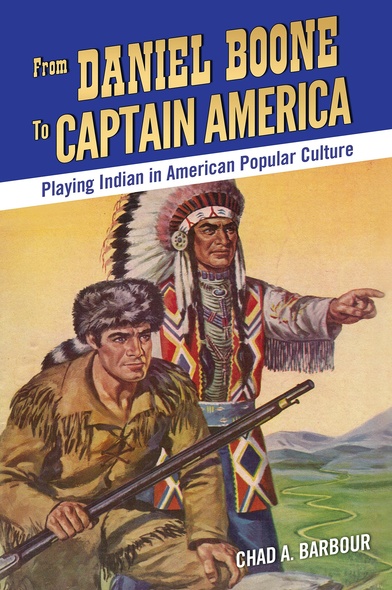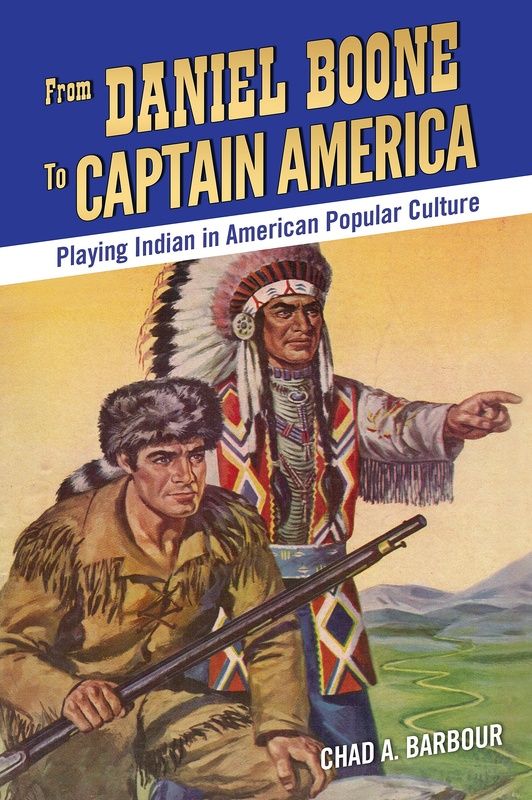Our shopping cart is currently down. To place an order, please contact our distributor, UTP Distribution, directly at utpbooks@utpress.utoronto.ca.

From Daniel Boone to Captain America
Playing Indian in American Popular Culture
From nineteenth-century American art and literature to comic books of the twentieth century and afterwards, Chad A. Barbour examines in From Daniel Boone to Captain America the transmission of the ideals and myths of the frontier and playing Indian in American culture. In the nineteenth century, American art and literature developed images of the Indian and the frontiersman that exemplified ideals of heroism, bravery, and manhood, as well as embodying fears of betrayal, loss of civilization, and weakness.
In the twentieth century, comic books, among other popular forms of media, would inherit these images. The Western genre of comic books participated fully in the common conventions, replicating and perpetuating the myths and ideals long associated with the frontier in the United States. A fascination with Native Americans also emerged in comic books devoted to depicting the Indian past of the US In such stories, the Indian remains a figure of the past, romanticized as a lost segment of US history, ignoring contemporary and actual Native peoples.
Playing Indian occupies a definite subgenre of Western comics, especially during the postwar period when a host of comics featuring a "white Indian" as the hero were being published. Playing Indian migrates into superhero comics, a phenomenon that heightens and amplifies the notions of heroism, bravery, and manhood already attached to the white Indian trope. Instances of superheroes like Batman and Superman playing Indian correspond with depictions found in the strictly Western comics. The superhero as Indian returned in the twenty-first century via Captain America, attesting to the continuing power of this ideal and image.
In From Daniel Boone to Captain America, Chad A. Barbour adds to the growing body of scholarship that condemns the unthinking portrayal of American Indians, portrayals that reinforce and perpetuate stereotypes of American Indians as either noble or bloodthirsty (savages, in either case), as both desirous and repulsive. In doing so, Barbour’s work sheds light on America’s collective ‘Indian problem'; that is, the nation is unable to understand American Indians as contemporary persons.
As a child, my father and I were members of the Indian Guides. We wore head feathers in the Maryland suburbs. As a teenager, I was a fan of the Redskins, and I never thought once about the implications. Somehow, I escaped the comic books that Chad Barbour covers here. It’s refreshingly painful to gain more insight into how bizarrely screwed up it is to be raised white and male in America.
Barbour skillfully analyzes the pervasive narrative of ‘performing Indianness (while marginalizing Native peoples)' that swells again and again in our most cherished American heroes, slipping cannily as he does so from national history to literary moment, genre to individual title, story to panel. His compelling argument, crafted through exhaustive research, fills a pressing need to examine the trembling, blustering, routinely dangerous nature of white paternalism.
Chad A. Barbour is associate professor of English at Lake Superior State University. His articles have appeared in the International Journal of Comic Art and the Journal of Popular Culture.





